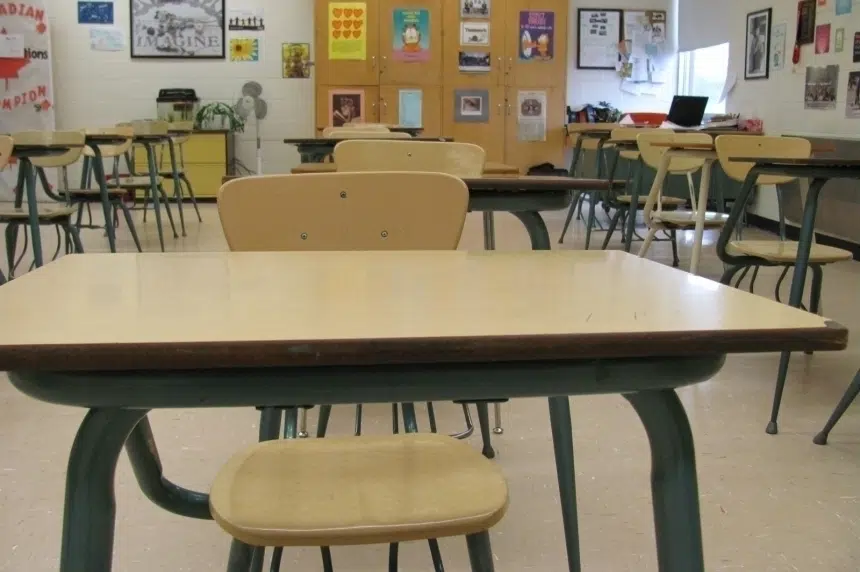Jo Barber loves kids and believes they should return to school, but she won’t be going back.
Barber is a retired teacher who has been a substitute for the last two years. She said she doesn’t feel safe being a substitute due to asthma and other underlying health conditions.
“It’s just too risky. If I had known that there would be a specific cohort — like I would only go into one classroom and that classroom was 10 to 15 students — then I might consider that was safer for me,” Barber said this week. “I’m not as confident right now given what protocols have been put in place.”
Students are set to return to classrooms on Sept. 8. The province has left it up to different school divisions to determine what sort of restrictions they will have in place.
Many divisions have come up with some sort of mask requirement for places where social distancing is not possible. Regina’s public and Catholic school divisions have also adjusted high school schedules to keep student movement to a minimum.
Barber and Deborah Bidulka, another substitute, joined NDP Education Critic Carla Beck to bring up a number of concerns, including a lack of available subs, cohorting strategies and financial help if a teacher needs to spend 14 days in quarantine due to COVID-19.
“There are substitutes who aren’t retired but they rely on this as their income so they’re going to take as many jobs as they can because financially that’s their bread and butter,” Barber said. “Some may be in 10 different schools and 10 different classrooms in a month.”
Beck said the funding issue is one that has been coming up for a while now.
“It’s something (NDP officials) have been asking for going back to the spring repeatedly. Very recently we saw the application of the $40 million from the contingency funds, (but with) only $20 million of that available for things like reducing class sizes and substitute teachers,” Beck said.
“School divisions are reluctant or in a difficult place to be hiring a lot of additional staff or making those sort of promises and sick time or cohorting without some guarantees from the provincial government.”
Saskatchewan Education Minister Gord Wyant said substitute teachers will be handled similarly to previous years.
“There’s a list of substitute teachers that each school division has and those school divisions bring those substitutes in when they can,” Wyant said. “Our plan is when substitute teachers do come into schools that they’re kept in perhaps one or two schools to minimize their movement through the school divisions so we want to ensure contact is reduced.
“We want to ensure they are treated in much the same way that regular teachers are.”
Barber said for colleagues she has talked to, one of the biggest concerns they have is financial security.
“What do (substitutes) do when they’re quarantined? Who’s going to help them cover that 14 day loss of income?” Barber said.
Bidulka said she has concerns over the number of substitute teachers that will be available, especially during flu season.
“I’ve heard through the grapevine that some teachers are not going back because either they are immune-compromised or in some cases they’re worried (because) they don’t just sub, they work another job. The other job probably makes more money than they would subbing and so they’ve decided they will do the other job instead of subbing,” Bidulka said.
“During flu season, it’s not uncommon for several teachers to be missing at one time because it goes through schools like wildfire. That’s why I’m worried about COVID.”











